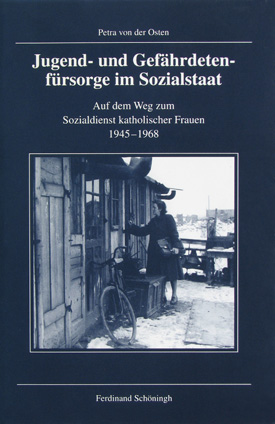Osten, Petra von der: Jugend- und Gefährdetenfürsorge im Sozialstaat. Der Katholische Fürsorge Verein für Mädchen, Frauen und Kinder auf dem Weg zum Sozialdienst katholischer Frauen 1945–1968, Paderborn [u. a.] 2003

It was not until 1999, when it quit the state-governed system of pregnancy counseling, that the Catholic Women’s Social Service (SkF) made a spectacular splash in the headlines. By then, the organization had already existed for a century. Founded by Agnes Neuhaus, this association provided aid to women and children from 1899 onward, helping define the conditions of welfare politics in Germany from the Wilhelmine Empire to the present day. Petra von der Osten’s study concentrates on the time after 1945, elucidating the position and status of this Catholic welfare agency in the period when the Federal German social welfare state was being created and consolidated.
Associational records of uncommon completenessprovided an exceptionally solid basis for the author's findings about the reconstruction of welfare assistance for young people and other »at risk« groups following the grave after-effects of National Socialist welfare policies. In restructuring youth aid efforts, for example, the association’s leaders promoted the principle of subsidiarity, which proved to be forward-looking. In its efforts on behalf of »at risk« adolescents, on the other hand, the agency let itself be guided by traditional, optimistic social conceptions. Von der Osten also examines professional standards, idealized images of women, and the motivations behind Catholic actions to round out this usefully conceived study. Scholars of Catholicism and women's studies will profit from this work, as will social historians in general.
To order our publications, please, contact your local bookshop or the publishing house Schöningh in Paderborn.
